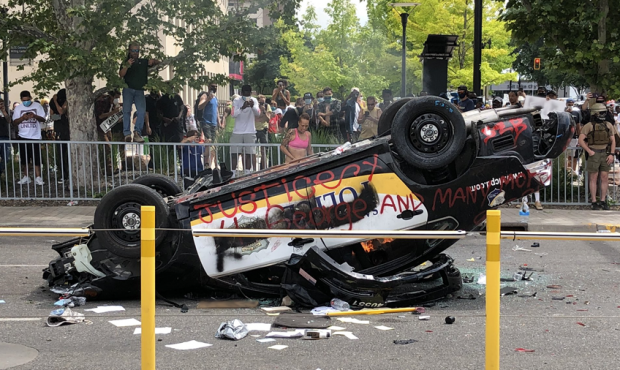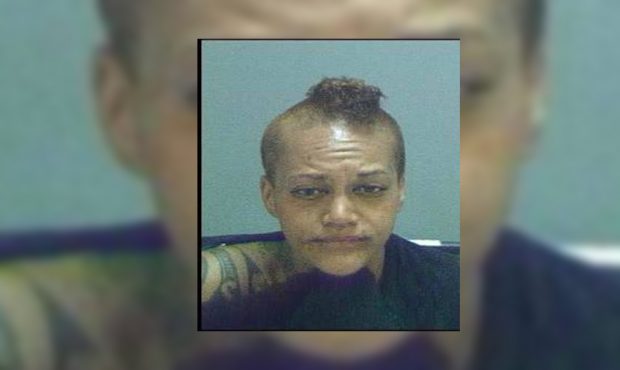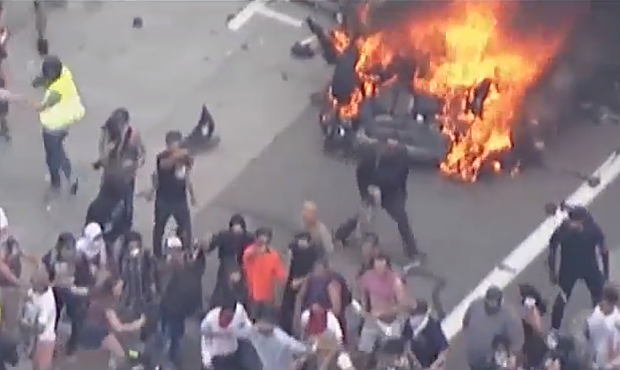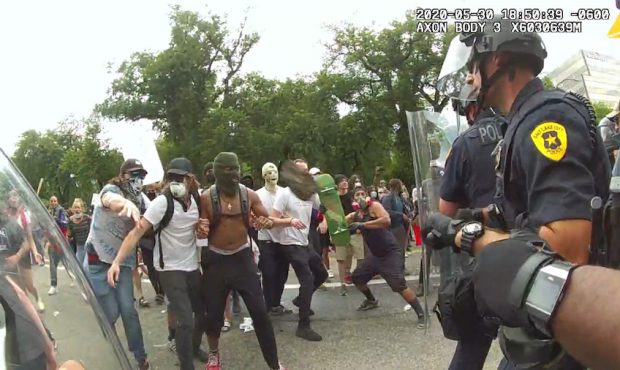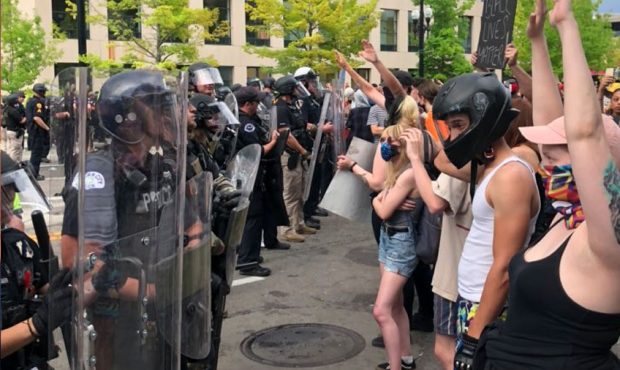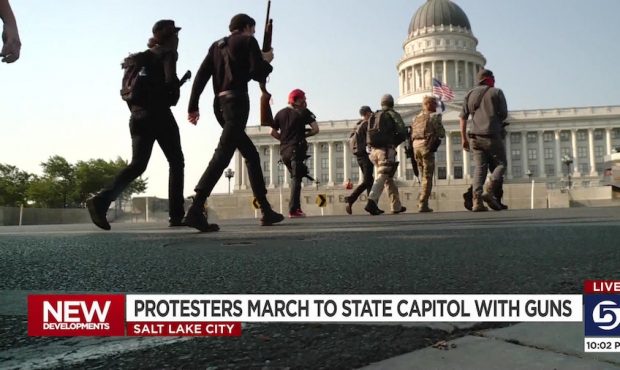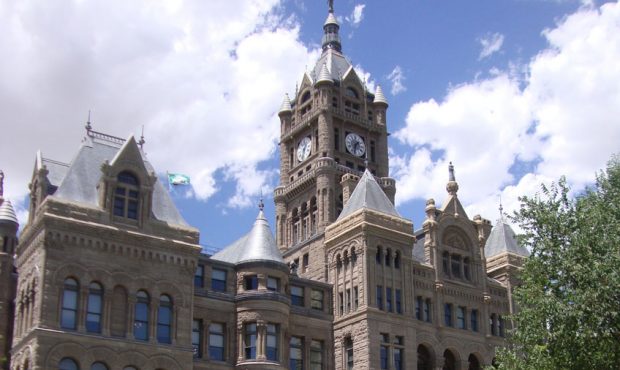Salt Lake DA: No Prosecution For Peaceful Protesters
Jun 26, 2020, 12:33 AM | Updated: 12:37 am
SALT LAKE CITY, Utah – The images from the moment a protest in downtown Salt Lake City turned into a riot will be tough to forget.
Many of those who vandalized property, and showed violent behavior, have been identified and arrested.
But nearly three dozen more were arrested for not leaving the Library Square area and breaking a curfew Salt Lake City Mayor Erin Mendenhall put in place just hours before.
On Thursday, Salt Lake County District Attorney Sim Gill announced his office won’t prosecute those who were arrested for curfew violations.
“That is a group that has a political message, which is constitutionally protected. And they are free to express that,” said Gill. “Let’s focus and target those individuals that violated the law in a direct way, in a confrontational way, which led to injury or damage of property.”
Gill said it’s a resource issue and a fairness issue, since many of those who broke curfew that night probably weren’t aware it had been put into place.
Today, @SimGillDA announced those who were arrested for violating curfew on the night of the downtown Salt Lake City riot (May 30th) will not face prosecution. But only for that night and only for those who just violated curfew. He explains why on @KSL5TV at 10. #ksltv pic.twitter.com/N5uwStYr5L
— Alex Cabrero (@KSL_AlexCabrero) June 26, 2020
“This is what I think justice is,” Gill said during an interview in his downtown office. “Justice is a measured approach. It’s a balanced approach.”
However, Gill said leniency is only for that single night, May 30, and not an indication of how his office would react with any future curfew violations.
“In no way should this be taken as a license for any future action and in no way should it be taken as a usurpation of the mayor’s authority,” said Gill.
As for Mendenhall, she announced the formation of a new commission on racial equality in policing Thursday morning.
“This commission is charged with examining our police department’s policies, budget and culture,” said Mendenhall during a news conference surrounded by members of the new commission.
The commission will be made up of community leaders — not politicians — of all races to advise the city of what changes should be made.
“Even when what they’re telling us may be hard to hear and maybe even harder to change,” said Mendenhall.
Darlene McDonald, who is the chairwoman of the Utah Black Roundtable, said this new commission was a step in the right direction, but it’s only the first step.
“I should not have to feel afraid if I am driving in my car and I have a headlight out or if a police officer is behind me,” said McDonald. “Those types of issues must change and our relationship with law enforcement because of that should change.”
McDonald said it’s too early to know for sure what topics the new commission will tackle first.
However, she said it’s important to sit down and listen to everyone from the community who will be involved.
“As a community, this is a moment that we are all in,” said McDonald. “My grandchildren, my great-grandchildren, my great-great-grandchildren will have a different conversation when it comes to policing and inequality within our institutions.”

